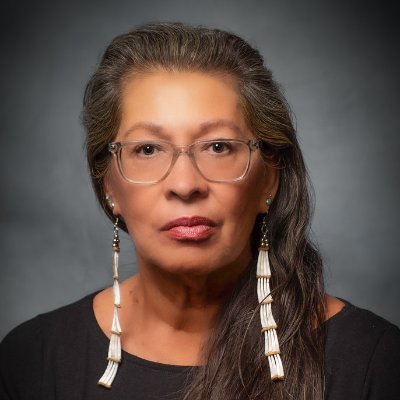Guest Opinion. The Trump campaign’s proposal to address the housing shortage crisis by seizing federal lands for development poses an extreme risk to Tribal sovereignty, Tribal lands, and sacred sites.

In last night’s remarks, JD Vance suggested that we "have a lot of federal lands that aren’t being used." This is a dangerous view of our precious natural resources. As Native peoples, we don’t see our lands, waters, and wildlife as something to be “used,” but nurtured, protected, and managed sustainably for generations to come.
Many Tribal lands are held in federal trust. What would stop the administration from seizing our lands for their for-profit developments? We’ve seen time and time again, our Indigenous lands and resources developed, destroyed, and extracted for corporate profit. It is the right of sovereign nations to determine the future and use of our lands. Enacting a policy of seizing federal lands for development ignores the federal government’s obligation to consult and coordinate with our Tribal nations on land management.
Our National Parks and National Monuments are also federal lands which were forcibly taken from Tribal nations. Tribal nations and Native communities have made progress in re-indigenizing National Parks to restore the history and caretaking of those sacred places. Great strides have also been made in the last four years in federal-Tribal co-management of federal lands, waters, and other resources. This federal-Tribal partnership has strengthened protections of sacred places for the benefit of everyone. This should be the future of all federal lands management.
It is an overreach of the federal government and a violation of our treaties and Tribal agreements to enact a policy of seizing federal lands for development.
Judith LeBlanc (Caddo) is the executive director of Native Organizers Alliance and NOA Action Fund.
Help us defend tribal sovereignty.
At Native News Online, our mission is rooted in telling the stories that strengthen sovereignty and uplift Indigenous voices — not just at year’s end, but every single day.
Because of your generosity last year, we were able to keep our reporters on the ground in tribal communities, at national gatherings and in the halls of Congress — covering the issues that matter most to Indian Country: sovereignty, culture, education, health and economic opportunity.
That support sustained us through a tough year in 2025. Now, as we look to the year ahead, we need your help right now to ensure warrior journalism remains strong — reporting that defends tribal sovereignty, amplifies Native truth, and holds power accountable.
 The stakes couldn't be higher. Your support keeps Native voices heard, Native stories told and Native sovereignty defended.
The stakes couldn't be higher. Your support keeps Native voices heard, Native stories told and Native sovereignty defended.
Stand with Warrior Journalism today.
Levi Rickert (Potawatomi), Editor & Publisher

